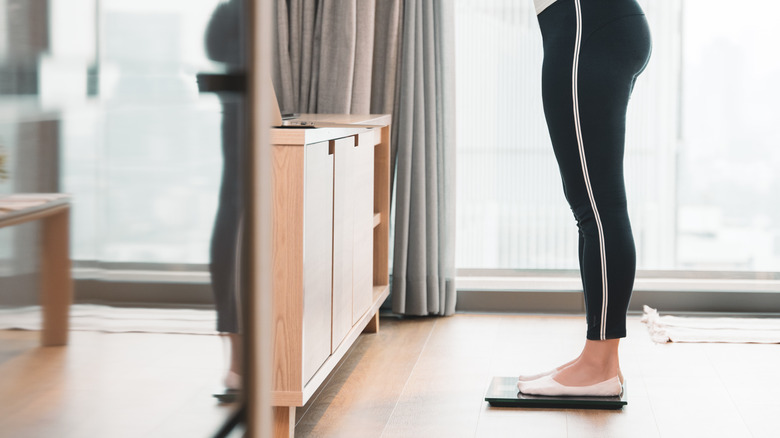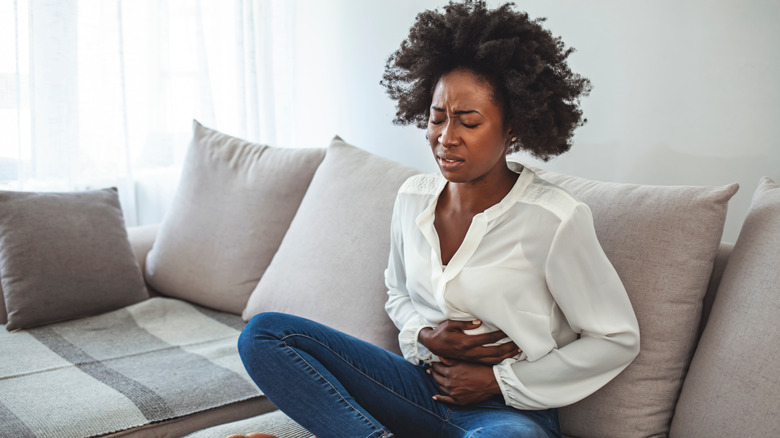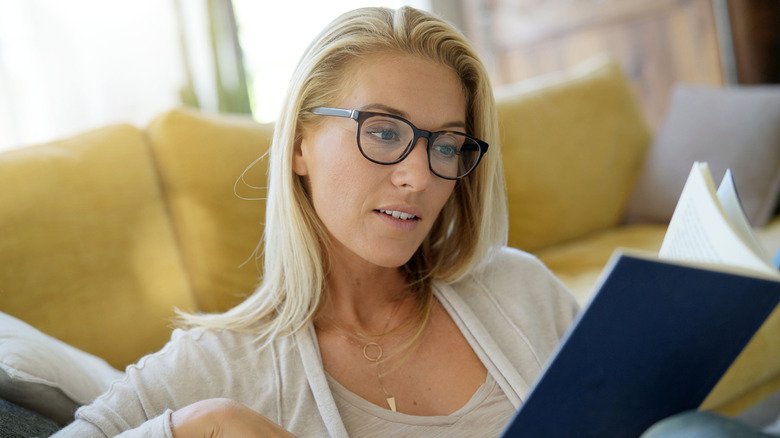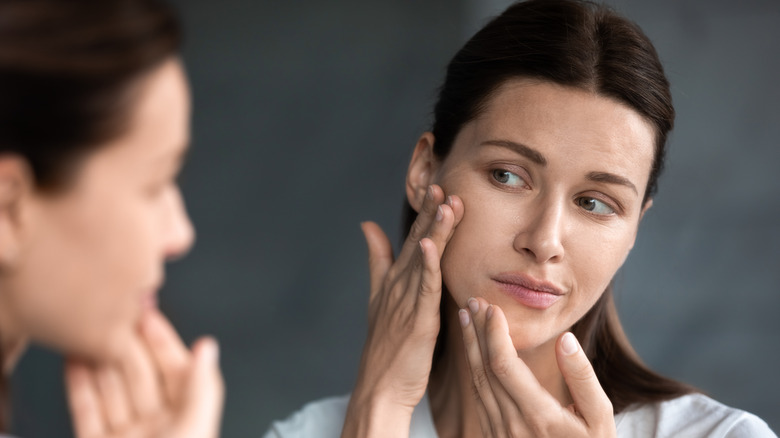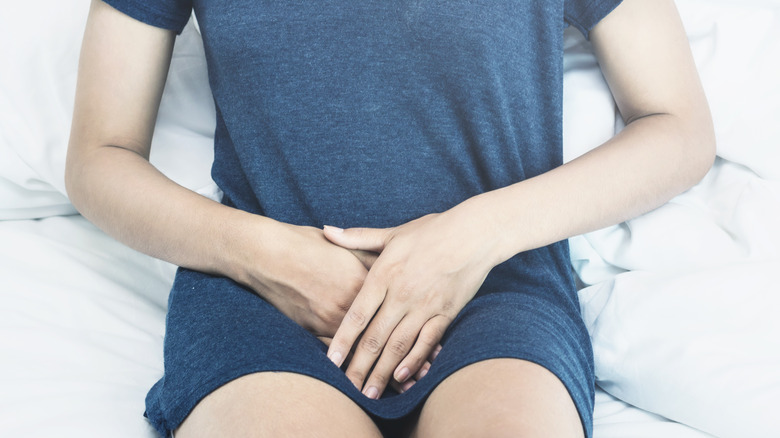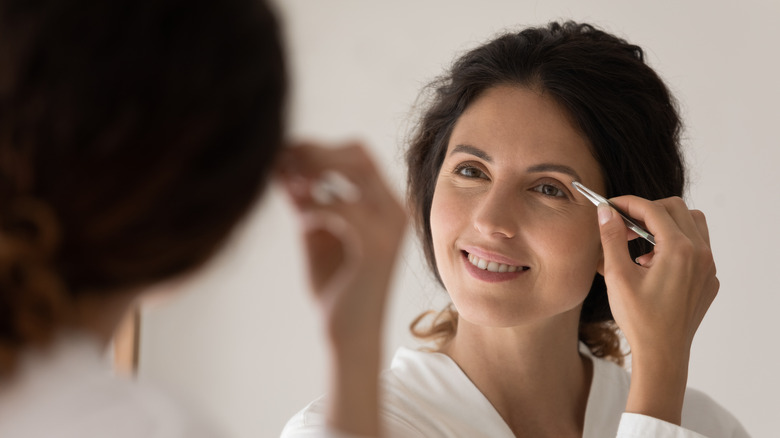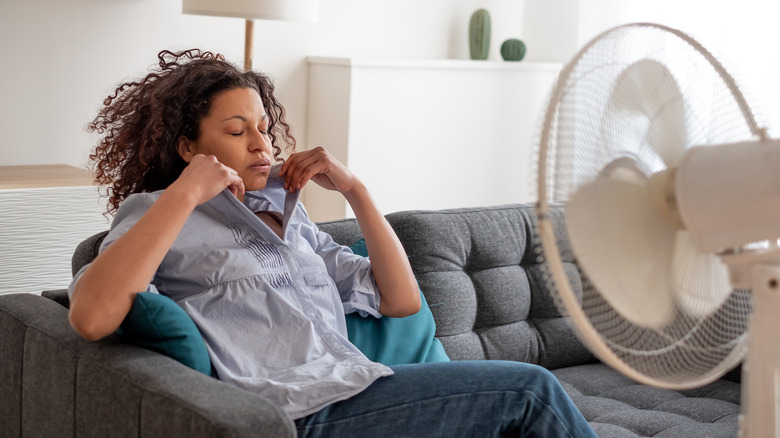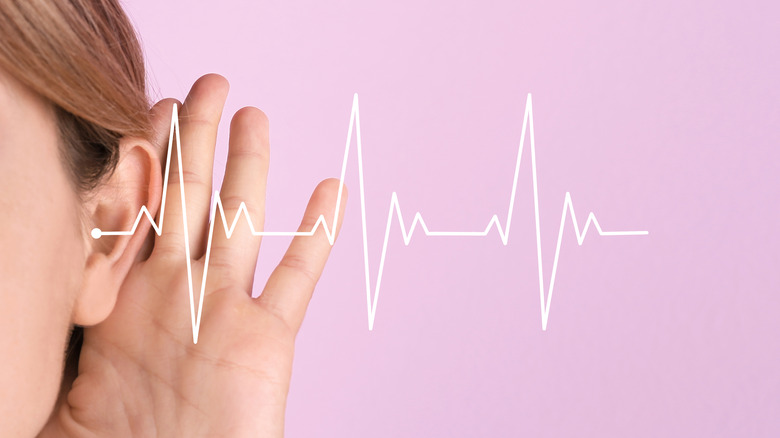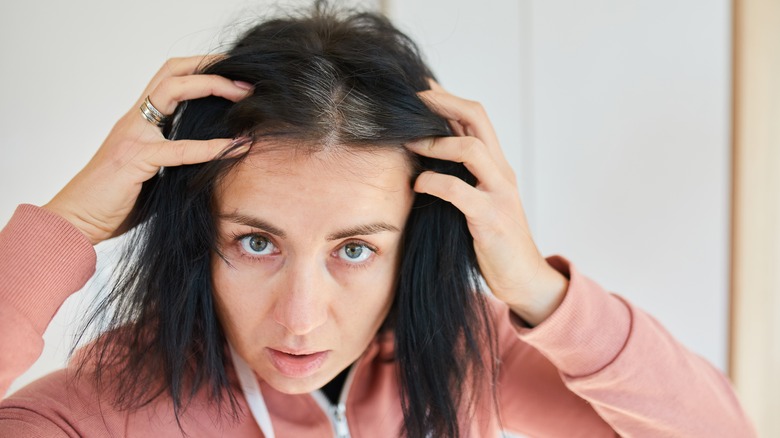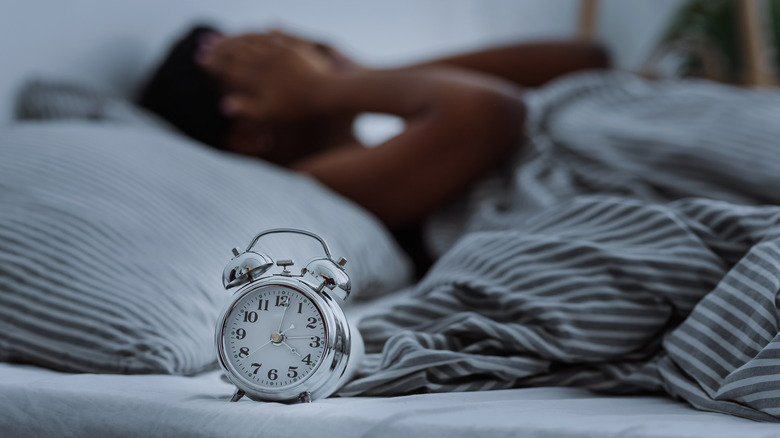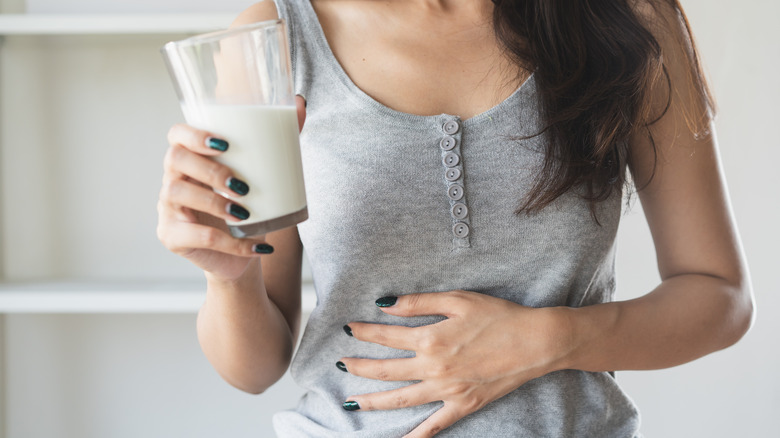What Happens To Your Body When You Reach Your 40s
Every new decade of life, especially the 40s, presents new gifts and new challenges. That doesn't mean that as soon as you blow out your 40th birthday candles, your hair turns gray and you suddenly can't read a book without wearing glasses. It's a gradual process, and just like any process, you'll start seeing subtle and more drastic changes, from your hair down to your feet.
While aging often gets a bad rap, it's best to embrace it and develop or sharpen good habits along the way, Laura Berman, Ph.D., a relationship and sex expert, told Prevention. "Women are often reticent to bring it up at all. A lot of women still suffer in silence," Berman said about aging, and the obstacles that come along with it, from hair loss to hot flashes.
If you're in your 40s, almost there, or are still years away from it, listen up. Here's everything you need to know about what happens to your body when you reach your 40s and how you can prepare and thrive in this decade.
Weight loss is tougher to achieve
It may be tougher to lose weight when you reach your 40s. One of the reasons that may be is because most people in this stage of life aren't burning as many calories as they used to when they were younger.
Plus, metabolism "slows due to reduced muscle mass, and our daily physical activities, particularly the time spent in exercise, declines," Dr. Robert Kushner with the Northwestern Medicine Center in Chicago told Today. And if you don't exercise regularly and eat right while this is happening, you "will experience a slow and steady increase in our body weight," Kushner added.
Some of the ways you can combat age-related weight loss, nutritionist Cynthia Sass, MPH, told Health is by reducing your carb intake, adding more veggies to your diet, and drinking alcohol moderately. Exercise is just as important and doesn't have to consist of a fancy HIIT workout routine, Kushner told Today. It can be as simple as going for a walk, opting for the stairs, and riding a bike. Other lifestyle tweaks that could help against weight gain are engaging in stress-relieving activities like yoga and developing a bedtime routine.
Periods may become unpredictable
Unpredictable periods can happen at any stage of life for multiple reasons, but when you're in your 40s, periods often become more unpredictable than not. "Because it's unpredictable," JoAnn Pinkerton, MD, with the University of Virginia Health System, told WebMD, "[periods] can be very difficult for women because they don't know exactly when it's coming."
From missed periods to a change in flow from month to month — heavy to light — as well as more cramping and mood swings, women in their 40s can experience irregularity and more pronounced period symptoms caused by hormonal changes preparing the body for menopause. Called perimenopause, this stage in a woman's life before menopause can last between two to 10 years, according to WebMD.
There are various things women in their 40s can do to ease perimenopause symptoms. The main thing, according to a Cleveland Clinic article, is living a healthy lifestyle. A healthy lifestyle includes regular exercise, a diet consisting of whole foods, low alcohol and caffeine consumption, and stress management.
You may find yourself with weak and brittle hair
When women hit their 40s, they may start noticing changes in their body, including their hair, which can develop a thinner and more brittle texture than in years prior. To top it off, it's difficult to "grow hair as long as it once used to," Shab Reslan, a hairstylist and trichologist, told Today in an article that interviewed a handful of hair experts.
Your 40s, or even before that, is when you want to start adding products to your hair routine, especially if all you do with your hair is wash it with regular shampoo and conditioner. With a strategic hair routine that includes scalp and hair treatments "rich in fatty acids and glycerin that retain moisture," trichologist Bridgette Hill told Today, a woman can achieve and maintain healthy hair in her 40s. It just takes a bit more upkeep.
What goes on your hair and scalp is just as important as what you eat, Reslan said, adding, "Diets high in protein and balanced with healthy fats and an abundance of greens and vegetables are essential for healthy and strong hair growth." To treat hair loss, Hill said women should prioritize scalp care. Today also noted that women in their 40s should be sure to wash their hair "regularly."
Vision may start to worsen
Reading glasses may be what the doctor orders when you go to an eye exam in your 40s.
According to the American Optometric Association, you begin to notice a worsening of vision when it comes to close distances (like when you're reading a book or staring at a computer screen) in your early 40s, a condition that progresses until your 60s. This natural occurrence is called presbyopia, which, according to the Mayo Clinic, is "the gradual loss of your eyes' ability to focus on nearby objects." It's a natural occurrence that makes it difficult to read in typical indoor lighting and can create difficulty driving at night.
"Nothing escapes time," ophthalmologist Claudia Perez-Straziota, MD, told Cleveland Clinic. "Our hair doesn't. Our joints don't. And our eyes don't. But there are things you can do to lessen the impact." One of the most important things is going to the eye doctor. If you're between 18 and 39 years of age, you should go to the eye doctor every two years at least and every year when you turn 40.
Your skin loses moisture and elasticity
When you reach your 40s, you may find that the skincare routine that worked in the past may not be enough moving forward. In your 40s, fine lines, dry skin, sunspots, and loss of elasticity may start becoming noticeable, which may mean it's time to step up your regular skincare regimen.
"Plummeting estrogen levels directly affect collagen production, skin thickness, and hydration," Dr. Mona Gohara, an associate clinical professor of dermatology at Yale, told Today. Due to this biological change, it's more important than ever to "develop an anti-aging skincare program, and stick with that program, during this decade," she added.
Any old skincare routine won't work, and every product should include ingredients that add moisture and boost elasticity, from sunscreen to face serums consisting of lipids and retinoids. It's all about choosing cream and serums that are not only good for your skin, but enjoyable to apply every day. "If your skincare routine is not enjoyable, continuity is difficult. Choose products of high quality. And select your active ingredients carefully," dermatologist Dr. Craig Kraffert told Byrdie.
Your sex drive may decrease while your confidence increases
While many factors affect your sex drive — from your monthly cycle to stress — age plays a factor too, according to OB-GYN John Thoppil, MD. He told Health that though "sex drive does often decrease with age," it's a gradual process that wanes between your 20s and 40s.
In your 40s, you will start experiencing perimenopause, which can last at most a decade before menopause. During perimenopause, women can undergo extreme hormonal changes that affect everything from mood to sex drive. Sex at this age can sometimes be painful, as Thoppil explained, because "a drop in estrogen can make vaginal tissue more dry."
One of the best ways to increase your sex drive at this age is to exercise regularly, which will not only give you more energy but will also help boost your mood, per a Verywell Health article. What you put on your plate can also help increase your sex drive. Foods like oysters or dark chocolate, according to Today. "In terms of immediate benefit, I think it might be mind over matter. But if it is, so what? The power of suggestion could be stronger than the chemicals that are within the foods," registered dietician Bonnie Taub-Dix told Today.
You could be more susceptible to UTIs and other bladder issues
Bladder problems, including urinary tract infections, or UTIs, affect women more in their 40s than in decades past, according to urogynecologist Jeannine Miranne, MD. Why? As the bladder muscle starts to "weaken" naturally, it may "result in incomplete bladder emptying for both men and women, which can predispose" someone to experiencing urinary tract infections often, Miranne told Well + Good. Sometimes women can even develop kidney dysfunction.
Miranne suggests women, starting in their 20s, take proactive steps to care for their bladder to prevent future discomfort that may come in the form of infections and issues with bladder leakage. "Treat your bladder kindly now, hydrate throughout the day, and don't hold it for too long," Miranne told readers of the publication.
One of the best ways to strengthen bladder muscles, according to a WebMD article, is by doing Kegel exercises, and making this exercise a part of your daily routine.
You may see more facial hair than usual
While women in their 40s may experience hair loss, hair may also pop up in weird spots on a woman's face due to hormonal changes during this time (as estrogen levels decrease and testosterone rises during perimenopause and then menopause), according to Prevention. Not only does more facial hair appear, but these hairs are often thicker in texture. "It's common for women to grow thicker facial hair due to a shift in hormones from weight gain, pregnancy, or menopause," Marina Peredo, MD, told HelloGiggles.
There are various ways to get rid of face hair. Jackie Morgan MacDougall, founder and CEO of Forty Thrive, told Prevention, "The worst is when you walk out the door feeling like you're looking good and then you look in the rearview mirror, and you see you've got a full-on beard." From waxing to electrolysis, there are various ways to combat age-related facial hair growth. According to dermatologist Corey L. Hartman, the best hair removal method is laser hair removal. "It's hands down the best, most effective, and most permanent way to get rid of any hair," she told HelloGiggles.
Hot flashes begin
Hot flashes don't necessarily begin when you reach menopause. In fact, you can suffer hot flashes as early as your 40s during perimenopause, also known as the transition into menopause, Wen Shen, MD, M.P.H, a gynecologist at John Hopkins, said in a question-and-answer article on the hospital's website.
What are hot flashes exactly? According to Shen, they're "quick bursts of hot skin and often drenching sweat that last anywhere from 30 seconds to about five minutes" and can also get your heart racing. They can also happen at night, called night sweats, and cause "fatigue" and "irritability." In the early 40s, Shen said women start perimenopause, in which hot flashes and nightly sweats begin, although they can start as early as their 30s. Menopause can start as early as age 46, where hot flashes can intensify and last through menopause and post-menopause.
While there's no official cause of hot flashes, according to The North American Menopause Society, it could be related to hypothalamus changes. The hypothalamus is the section of the brain that affects the temperature of the body.
Hearing loss may become noticeable
As you live out your 40s, you may start hearing yourself ask, "What?" in conversation more often, according to a Cleveland Clinic article. "Hearing is not like seeing. You know when your eyes are going. But it's much harder to detect early hearing loss," audiologist Sharon Sandridge, Ph.D., said in the article.
According to Sandridge, the main reason people experience hearing loss in their 30s and 40s is loud noises, adding, "Any loud sound can cause noise-induced hearing loss, including music and the crowd at a sporting event." Signs of hearing loss caused by noise include trouble understanding speech over the phone or at a noisy venue like a restaurant, ear ringing, and asking others to speak louder and clearer, among other things, according to the Centers for Disease Control and Prevention.
Sandridge also told Cleveland Clinic that ear damage is caused by not just how high the sound is, but how long you're exposed to it: "The louder the sound, the shorter that exposure time can be."
You may start seeing gray hair
In your 40s, or even before that, you may start to spot more and more gray hair in the bathroom mirror. Why? As you age, you undergo a decrease of melanin, and "the amount and combination of melanin determines hair color," dermatologist Wilma Bergfeld, MD, told Cleveland Clinic. White hair doesn't have any melanin in it, and what causes this reduction in melanin as you age, according to the Clinic article, is that there is "a gradual decline in the number of stem cells that mature to become melanin-producing cells."
Some women start seeing gray hair prematurely, and the reason for that, trichologist Gretchen Friese told Marie Claire, is genetics. "Usually if one or both parents went gray earlier in life there is ... more of a chance that you will," she added. Friese told the mag that the occasional gray hair here and there doesn't mean you're going gray, adding, "When a person is 'going gray' it usually happens in concentrated areas."
Gray hair has become a hair trend since COVID-19 caused the world, including salons, to shut down temporarily, leaving many women rocking their natural color, gray hairs and all. "The majority [of my clients] saw themselves, saw their roots, saw everything and said, 'You know, I don't mind it,'" the founder of Suite Caroline Salon in NYC, Lena Ott, told NBC News.
Your sleep patterns may change
Sleep patterns change as you age, making it hard to fall asleep, but there are healthy choices you can make to counteract sleep problems.
Nicole M. Avena, Ph.D., an assistant neuroscience professor at Mount Sinai School of Medicine, told Real Simple that it's vital to educate yourself about how your sleep changes throughout the decades. "Once you reach your 20s, your body has more or less established a stable sleep-wake cycle," she said, adding, "However, many people may not understand this cycle until later in life, such as in their 30s or 40s."
According to the CDC, adults between 18 and 60 need the same amount of sleep, at least seven hours a night. Perimenopause, a period of hormonal changes that leads to menopause over several years or a decade at most, can affect sleep quality per Everlywell. So does your health, Avena told Real Simple. "Sleep doesn't just mirror your age, it mirrors your health, too," Avena explained, adding, "Certain health conditions and even your health from day to day can impact how well you sleep at night." Following a bedtime routine and avoiding napping in the late afternoon can all help get your sleep back on track.
Lactose intolerance becomes more noticeable in your 40s
A glass of milk or a bowl of ice cream may hit your stomach differently in your 40s. According to registered dietician Laura Acosta, lactose intolerance can become more prevalent as we age. "Some people are able to tolerate lactose throughout their lives, but others become more lactose intolerant as they age," Acosta told WebMD, and this is usually dependent on your genes.
This decline in "enzyme production" in your 40s causes sensitivity to foods like cheese and yogurt, gastroenterologist Christine Lee, MD, told WebMD. While age can spur lactose intolerance, there are other conditions that can cause this condition later in a person's life, conditions like celiac disease or Crohn's disease.
While lactose intolerance may cause uncomfortable symptoms, including an upset stomach and gas, it's not a dangerous condition, and you can often easily manage it by omitting certain foods from your diet.

